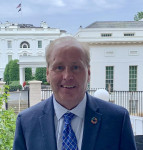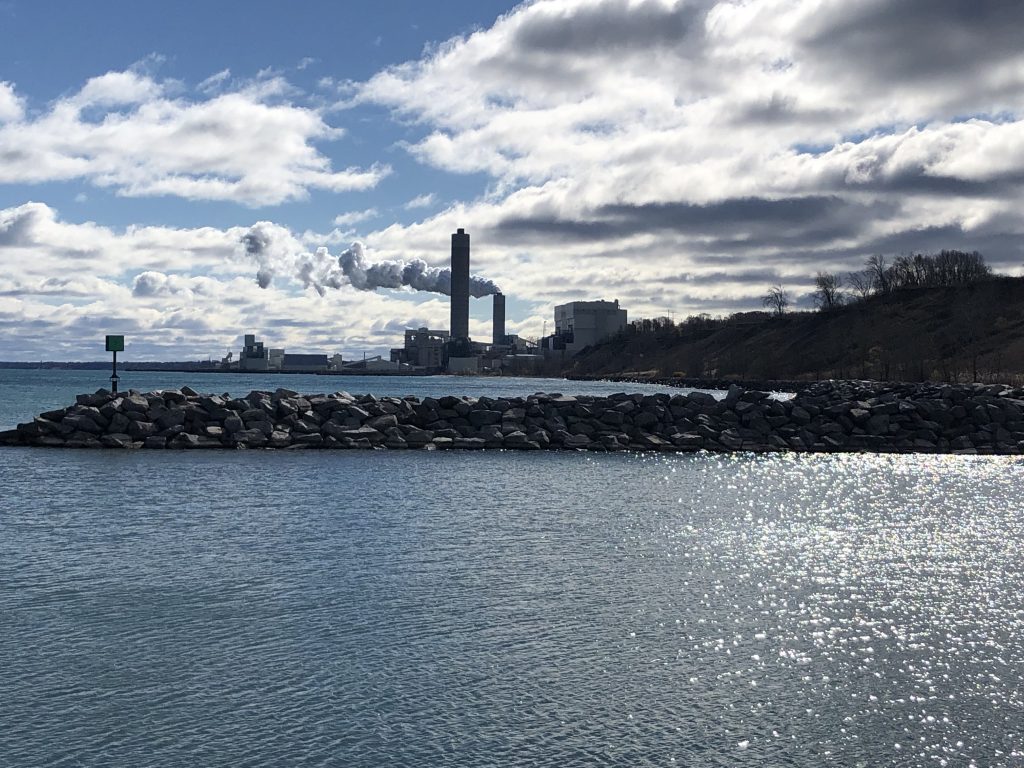We Energies’ Natural Gas Plans Are A Mistake
Proposals represent a substantial deviation from clean, affordable energy goals.
In a recent development, We Energies announced plans to construct two massive new natural gas plants, potentially costing ratepayers billions of dollars. This move represents a significant backtrack on clean energy commitments and raises concerns about Wisconsin’s ability to provide more affordable energy sources in the future.
A significant gap in Wisconsin’s regulatory process is at the heart of the issue: the absence of holistic integrated resource planning (IRP) within the Public Service Commission (PSC). Without this crucial tool for evaluating the merits of new energy projects against the state’s overall energy needs and sustainability goals, Wisconsin risks making short-sighted decisions with long-term, costly consequences.
We Energies justifies its plans based on several factors, including new capacity requirements from the regional grid operator MISO, recent EPA air rules, and increased demand in southeastern Wisconsin, particularly driven by a Microsoft data center project. However, these reasons fail to align with the broader clean energy aspirations set forth by the state and the nation.
The planned natural gas plants starkly contrast with We Energies’ stated commitments to reducing carbon emissions. Despite pledging an 80% reduction in carbon emissions by 2030 and aiming for carbon-neutral status by 2050, the company’s actions tell a different story. The proposed plants, with an operational lifespan of over 30 years, would significantly hinder progress towards achieving these ambitious goals. Moreover, natural gas plants emit methane, a powerful greenhouse gas more than 80 times more potent than carbon dioxide.
Microsoft is already shifting to 100% renewable energy, including agreements covering all fossil fuel-emitting electricity consumed by its data centers. The company is also exploring opportunities to make its battery backup power banks available to transmission grid operators to help meet electricity demand.
Additionally, massive battery energy storage systems are being deployed nationwide, even in Alaska, to replace natural gas plants for addressing peak demand while reducing costs. The price of natural gas can swing rapidly, increasing the financial burden on ratepayers and hindering the state’s progress towards more affordable, sustainable energy. Wisconsin’s electric rates already rank among the top 15 states nationally and exceed the Midwest average.
In addition, the health implications of continuing reliance on natural gas cannot be overlooked. Methane emissions associated with natural gas extraction and combustion pose significant health risks and air pollution-related ailments among Wisconsinites. Burning natural gas, combined with other air pollutants, worsens ozone pollution nonattainment, which can inhibit business and manufacturing expansion.
With a 100% Clean Energy Standard, Wisconsin can accelerate and expand utility-scale solar, wind, advanced battery storage, microgrids, and low-cost community solar projects, plus smart grid technology upgrades to the transmission network. The U.S. Department of Energy (DOE) has identified offshore wind as another technology to consider, where floating wind turbines on the Great Lakes can tap into existing power plant transmission and distribution networks, saving ratepayer dollars.
Moreover, leveraging the new Inflation Reduction Act (IRA) federal tax credits, home energy efficiency rebates, weatherization and other incentives will reduce energy demand and help spur clean energy technology manufacturing and workforce development in the region.
The potential health consequences, increasing financial burden, and economic impacts on green job growth underscore the urgent need to transition towards cleaner, renewable energy sources. This is why many groups across the state – including the Clean Economy Coalition of Wisconsin (CECW), a coalition of climate, energy, environmental justice, and conservation organizations, businesses, and allies – oppose new fossil fuel plants and support a more holistic planning process that aligns with the state’s clean energy goals and growing Wisconsin’s clean energy economy.
It’s time to prioritize the long-term well-being of our communities and environment over short-term gains. Together, let’s urge policymakers to embrace a clean energy future for Wisconsin—one that benefits everyone, now and for generations to come.
John Imes is Cofounder & Director of Wisconsin Environmental Initiative.
If you think stories like this are important, become a member of Urban Milwaukee and help support real, independent journalism. Plus you get some cool added benefits.
Op-Ed
-
Wisconsin Candidates Decry Money in Politics, Plan to Raise Tons of It
 Dec 15th, 2025 by Ruth Conniff
Dec 15th, 2025 by Ruth Conniff
-
Trump Left Contraceptives to Rot; Women Pay the Price
 Dec 8th, 2025 by Dr. Shefaali Sharma
Dec 8th, 2025 by Dr. Shefaali Sharma
-
Why the Common Council’s Amended Budget is Good Policy for Milwaukee
 Nov 20th, 2025 by Alds. Marina Dimitrijevic and Russell W. Stamper, II
Nov 20th, 2025 by Alds. Marina Dimitrijevic and Russell W. Stamper, II




















“Microsoft is already shifting to 100% renewable energy, including agreements covering all fossil fuel-emitting electricity consumed by its data centers”.
Probably just more corporate gaslighting from giant tech companies. From an article appearing ion Bloomberg yesterday, July 2nd…
“Google’s emissions climbed by almost half over five years, as the company has infused artificial intelligence throughout many of its core products — making it harder to meet its goal of eliminating carbon emissions by 2030, according to a new environmental report from the tech giant.
In May, Microsoft Corp. said its carbon emissions climbed 30% since 2020, as the company increasingly invested in AI. The increase made that company’s target of getting to below net-zero emissions by 2030 even harder than it was when it announced its carbon-negative goal”.